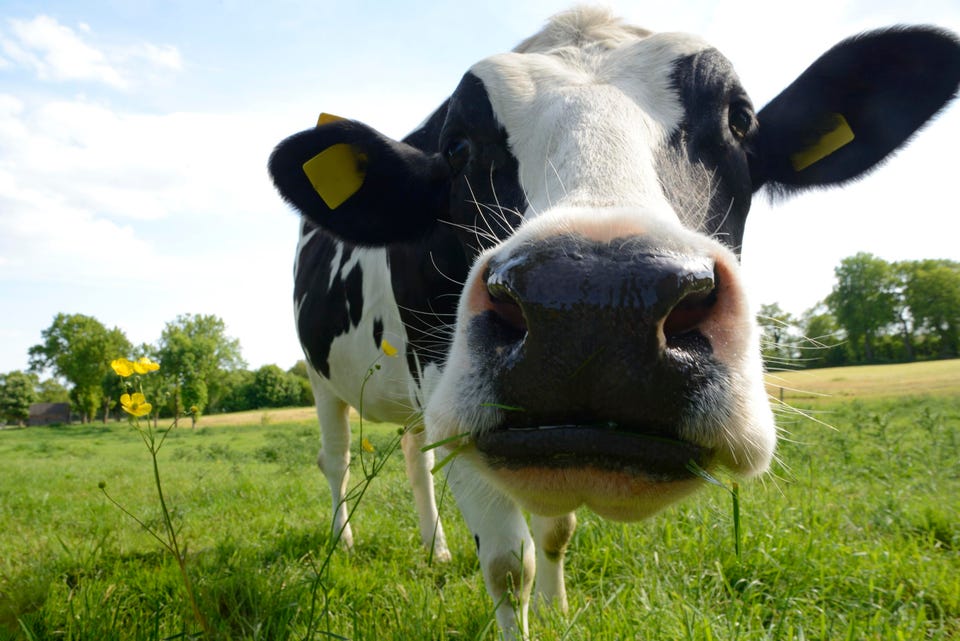Food & Drink Why A Start-Up Company Plans To Offer “Cheese Without The Cow” Steven Savage Contributor Opinions expressed by Forbes Contributors are their own. I write about issues and technologies related to agriculture and food. Following New! Follow this author to stay notified about their latest stories.
Got it! Oct 28, 2022, 09:00am EDT | New! Click on the conversation bubble to join the conversation Got it! Share to Facebook Share to Twitter Share to Linkedin Wait, what was that about the “without the cow” thing? getty Between population growth and a rising standard of living in many regions, the world will need a great deal more protein in the coming decades. Animal agriculture and fisheries will continue to be the main sources and can be sustainably produced , but there is considerable interest in the development of “alternative-protein” options. Beans, lentils and other legumes have always contributed protein to the human diet, but consumers really enjoy specific attributes of animal-derived foods, and that is why there has been a great deal of effort to develop alt-protein products that imitate those qualities.
The most developed alternative protein categories are “plant-based meats”, and plant-based beverages, controversially called milks. While these products have achieved considerable market penetration, there are still many features of real animal products that are difficult or impossible to replicate with purely plant derived ingredients. Indeed, these products are sometimes criticized because they involve a great deal of processing and a long list of ingredients – things that run against long-term marketing of “whole foods” and “natural foods” being more desirable than “ultra-processed foods.
” A new alt-protein strategy is approaching the market and it employs fermentation of sugars using familiar organisms (bacteria and fungi) that have long been used to make foods and food related products. Wine and beer are made through fermentation as are enzymes that are used in the production of many foods. Yogurt and many cheeses are made using a microbial fermentation process.
The novel feature of this new wave is that it uses advanced genetic technologies to train microbes that can make the exact animal proteins of interest for a food product. One example of this approach that is likely to enter the market in 2023 is a Mozzarella cheese product that has been developed by a start-up company called New Culture . They describe this as “Cow cheese without the cow.
” The team at New Culture New Culture New Culture’s co-founder, Matt Gibson, is from New Zealand where he founded several start-ups. He then moved to the California Bay Area and started New Culture with co-founder Inja Radman through the IndieBio biotechnology-oriented accelerator. He saw this as a way to pursue three of his personal passions – veganism, sustainability, and a love of science.
The resulting company uses genetic engineering and precision fermentation to produce casein – the key cheesemaking protein in milk. There is a precedent for the use of a genetically engineered organism in the cheesemaking process. There is an enzyme preparation called “rennin” that has traditionally been used to curdle the milk in the cheese making process, but it had to be sourced from the stomachs of un-weaned calves.
Black and white Holstein Cow standing with twin calves one nursing the other laying in the grass. . .
. [+] Calves like this used to be the source of rennin used in cheesemaking getty MORE FOR YOU Why The Rock’s Social Media Muscle Made Him Hollywood’s Highest-Paid Actor 3 Ways To Not Let ‘Emotional Impermanence’ Ruin Your Relationship A New York Court Just Reinstated Fired Unvaccinated Workers – What That Could Mean For Workers Across The Country Today, most of those cheeses are made using a bio-identical version of the animal enzyme chymosin produced using fermentation with a genetically engineered organism rather than the un-weaned calves. For their initial product, New Culture is going to use their fermentation-based casein to make a Mozzarella style cheese that has the taste, melting and stretching properties of dairy-based cheese.
New Culture’s Mozzarella has the expected properties of cheese in foods like pizza New Culture: Copyright 2022. All rights reserved. This product is expected to be of particular interest to vegans and those that pursue veganesque diets.
It is also a fit for people with lactose intolerance because New Culture’s product will specifically be made without that particular sugar which is found in cow’s milk. Another market fit will be around the issue that some plant-based cheese options are made with nuts and so this product would work for people with certain nut allergies. The casein for this cheese is made using a conventional fermentation organism, the identity of which is being kept as a trade secret for now.
However, their fermentation platform is sufficiently mainstream to anticipate that the FDA will soon be able to give it GRAS status (generally regarded as safe). That along with a facility certification should allow New Culture to launch their product in 2023. There are already several pizzerias in New York City and in California that are interested in being early adopters like restaurants that were the first to offer Impossible Burgers.
Consumers can sign-up on a waiting list to try the cheese when it becomes available. The broader potential for this kind of protein production has been signaled by the announcement of a joint venture between New Culture and the giant food ingredient company ADM . The kind of product expected to be on the market in 2023 New Culture Follow me on Twitter or LinkedIn .
Check out my website . Steven Savage Editorial Standards Print Reprints & Permissions.
From: forbes
URL: https://www.forbes.com/sites/stevensavage/2022/10/28/why-a-start-up-company-plans-to-offer-cheese-without-the-cow/
